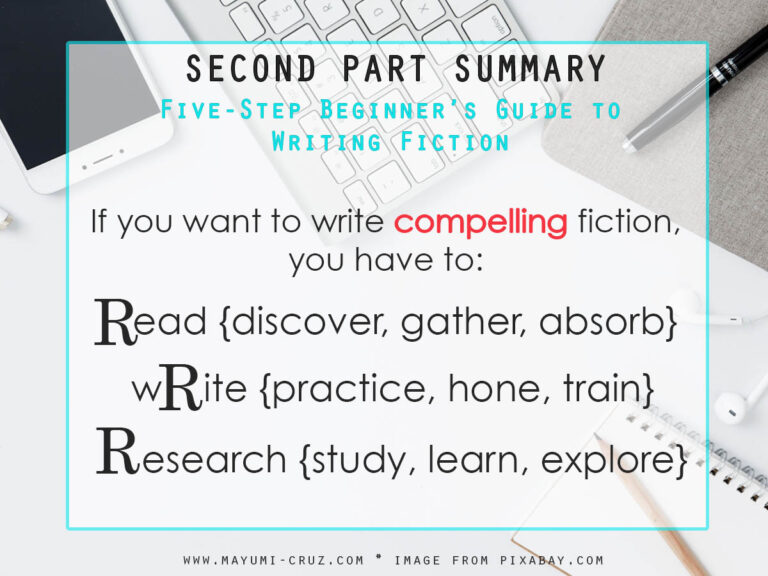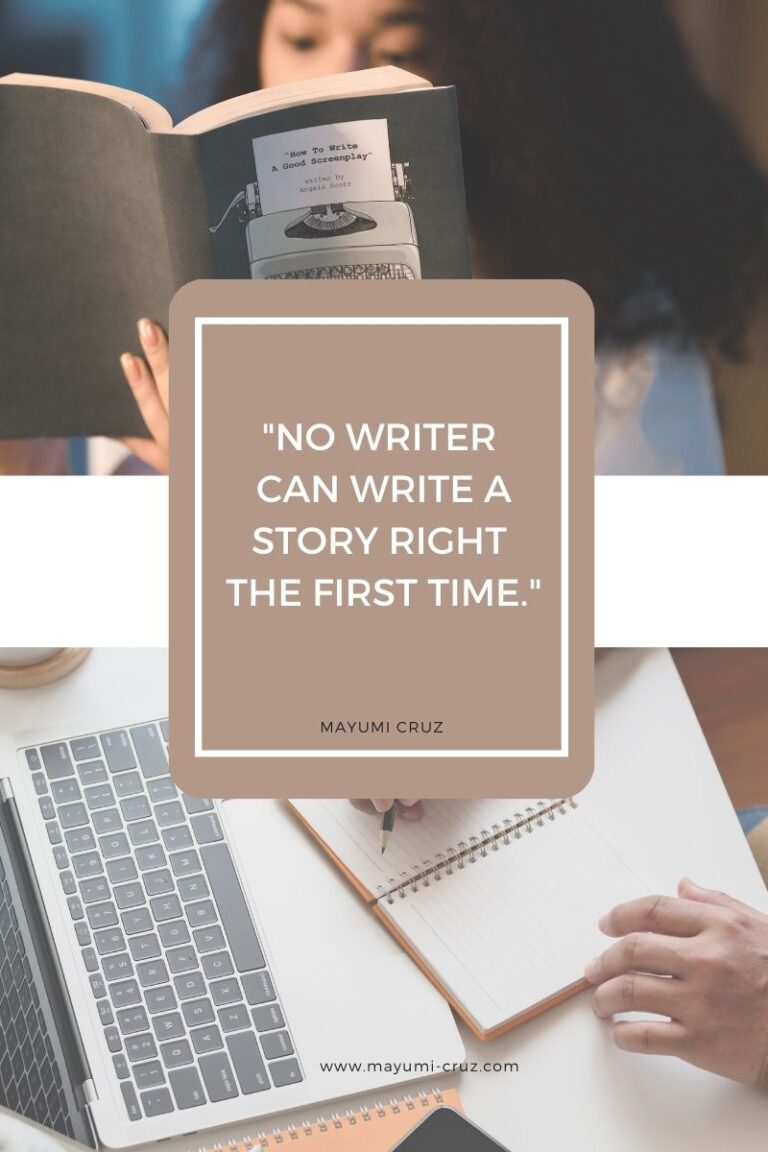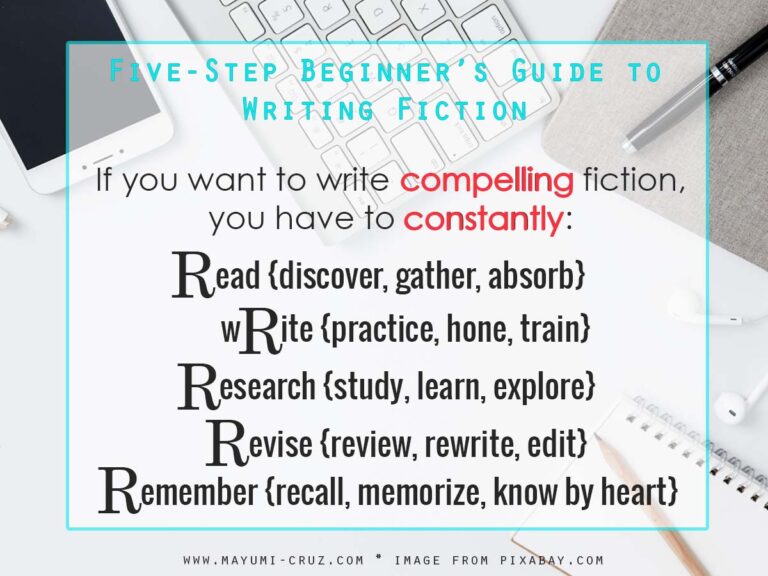
{Writing}
Five-Step Beginner’s Guide to Writing Fiction (Part 3)
Sharing what I’ve learned so far as a writer. (Part 3 of a 3-part series)
Welcome to the last installment of my Five-Step Beginner’s Guide to Writing Fiction.
An overview: Basically, these five steps comprise five R’s.
Part I discussed the first two R’s: Read and wRite. Part 2 tackled the third R: Research.
Here’s an infographic for easier recollection:

Today, in Part 3, we will go over the fourth and fifth R’s.

4. R for Revise
So let’s say you’ve done everything we’ve talked about and was able to write a story.
Hooray! Congratulations!
Nope. Sorry to burst your bubble, but that’s not a story. . . yet.
That’s only a FIRST DRAFT.
(Actually, if you’re like me, the first of many that may or may not be finalized.)
The first draft is not your final story.
(That’s why it’s called a first draft.)
The first draft is never perfect.
(You won’t find anyone who can teach a perfect first draft.)
The first draft of any story is all bones and blood, no flesh and muscles.
(It’s a cross between a ghost and a skeleton.)
Then why the heck will you bother writing it in the first place?

Why, indeed?
Because first drafts are very important.
Without first drafts (or second, or third, or nth draft), your story will not be finished.
Think of it this way: The first draft is a starting point. You cannot arrive at the finish line without getting off the starting point.
John Dufresne says it right:
No writer can write a story right the first time.
But every writer can write it down first. And then review it, edit it, rewrite it, make it close to perfection, if possible.
In one word, revise.
But before you can revise a story, you have to write down something first.
You cannot revise a story you haven’t written down.
For some writers, revising can be like writing another, different story altogether. For others, revising can simply be correcting grammar, adding or deleting characters and scenes.
Whatever kind of revising you find yourself in with your story, revising is a very important factor in producing a compelling work of fiction.

Now we come to the end of this Guide. The last “R” is equally important, if not the most important, if you really want to write fiction.
5. R for Remember Always
(I told you to remember the number of times I mentioned “remember” in the last post, didn’t I?
You want to be a well-informed writer?
- Remember Always to Read.
You want to write a story?
- Remember Always to pick up that pen, or tap on that keyboard, and wRite.
You want to write not just a story, but a really, really good one?
- Remember Always to Research, learn, explore, make sure the basic elements of fiction are included in whatever story you’re writing.
If you want to write compelling fiction, you need to…
- Remember to do all these things Always.
As in Constantly. Continously. Consistently. Repeatedly.
It’s not enough to know about these things. You have to Remember Always to do them.
You have to make it a part of your life.
If you don’t, you won’t be able to create a work of fiction.
If you start doing it and then stop, you won’t be able to write, much less, finish anything.
But if you Remember Always to do these things, the words will flow like a raging river and you will be able to write that story burning in your heart.
Remember (pun intended) that this is just a guide, the basics, the ABCs (or, as I put it, the 5R’s.)
This is neither extensive or comprehensive. Barring obstacles and problems, fiction writing is possible when you follow these.
To recap, here’s the 5-Step Beginner’s Guide to Writing Fiction:


4 thoughts on “5 Step Proven Beginner’s Guide to Writing Fiction (Part 3)”